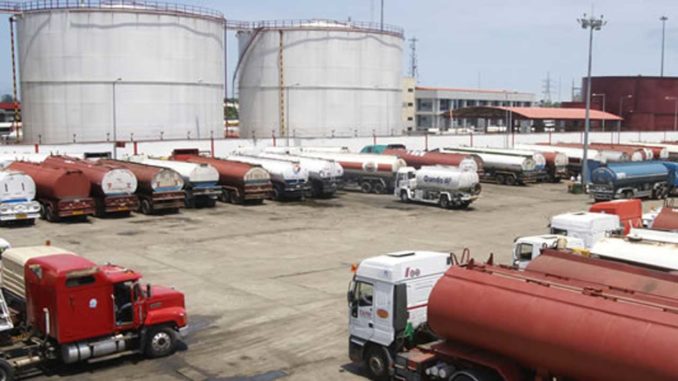The ad hoc committee set up by the House of Representatives to investigate and determine the actual volume of petrol consumed by Nigerians daily, has said it is unable to ascertain the actual daily fuel consumption after a probe which took 17 months.
In January 2022, Speaker Femi Gbajabiamila, had mandated the committee to probe the actual volume of petrol consumed daily, saying the federal government needed to first establish the daily consumption of the petroleum product before seeking an extension of the subsidy regime.
But the report of the adhoc committee which was considered and adopted by the House on Wednesday indicated that the committee could not ascertain the actual daily volume of fuel consumption because there was no available data to that effect.
Chairman of the committee, Abdulkadir Abdullahi, while speaking on the report said, “There are simply no data to conclusively arrive at the daily consumption of PMS, in view of the fact, that records or information on the daily dispense at the various retail outlets/fueling stations are not readily available.”
Reps call for sanctions against defaulting DISCOs
Nigeria spent $8bn to restore peace in Liberia – Gen. Irabor
He said the committee was only able to ascertain the volume of petrol that was supplied but could not ascertain the actual volume that was actually dispensed by the various retail outlets as there were no records on that.
“Upon thorough scrutiny of the records of various stakeholders, it’s the considered opinion of the committee that the total volume of PMS supplied in the year 2022 is put at 24,346,925,589 liters or less, which is in tandem with the record of the NMDPRA; the daily average volume of PMS supplied in the year 2022 is put at 66,703,905.72 liters or less.
“Notwithstanding, the determination of the Committee to achieve its mandate, there are simply no data to conclusively arrive at the daily consumption of PMS, in view of the fact, that records or information on the daily dispense at the various retail outlets/fueling stations are not readily available,” he said.
The committee, among others, recommended a forensic audit of the Nigeria National Petroleum Corporation Limited (NNPCL) aimed at giving clarity to the Direct Sale Direct Purchase (DSDP) programme and the consortiums of DSDP operators with the view to unravelling the discrepancies in the importation and supply of premium motor spirit (PMS) commencing from 2015 to date.
It also recommended that action be expedited for the full implementation of the Petroleum Industry Act, 2021 which was contemplated to provide and address the challenges and the uncertainties within the oil and gas industry including but not limited to the supply, storage and distribution of premium motor spirit (PMS) in Nigeria.
The House charged the Nigerian Midstream Downstream Petroleum Regulatory Authority (NMDPRA) on the need to use information technology (IT) to monitor trucks conveying premium motor spirit (PMS) within locations and compel through similar technology a daily data report on the dispense of the product at all retail outlets/fueling stations, by making it a condition precedent for their continued operation.

 Join Daily Trust WhatsApp Community For Quick Access To News and Happenings Around You.
Join Daily Trust WhatsApp Community For Quick Access To News and Happenings Around You.


